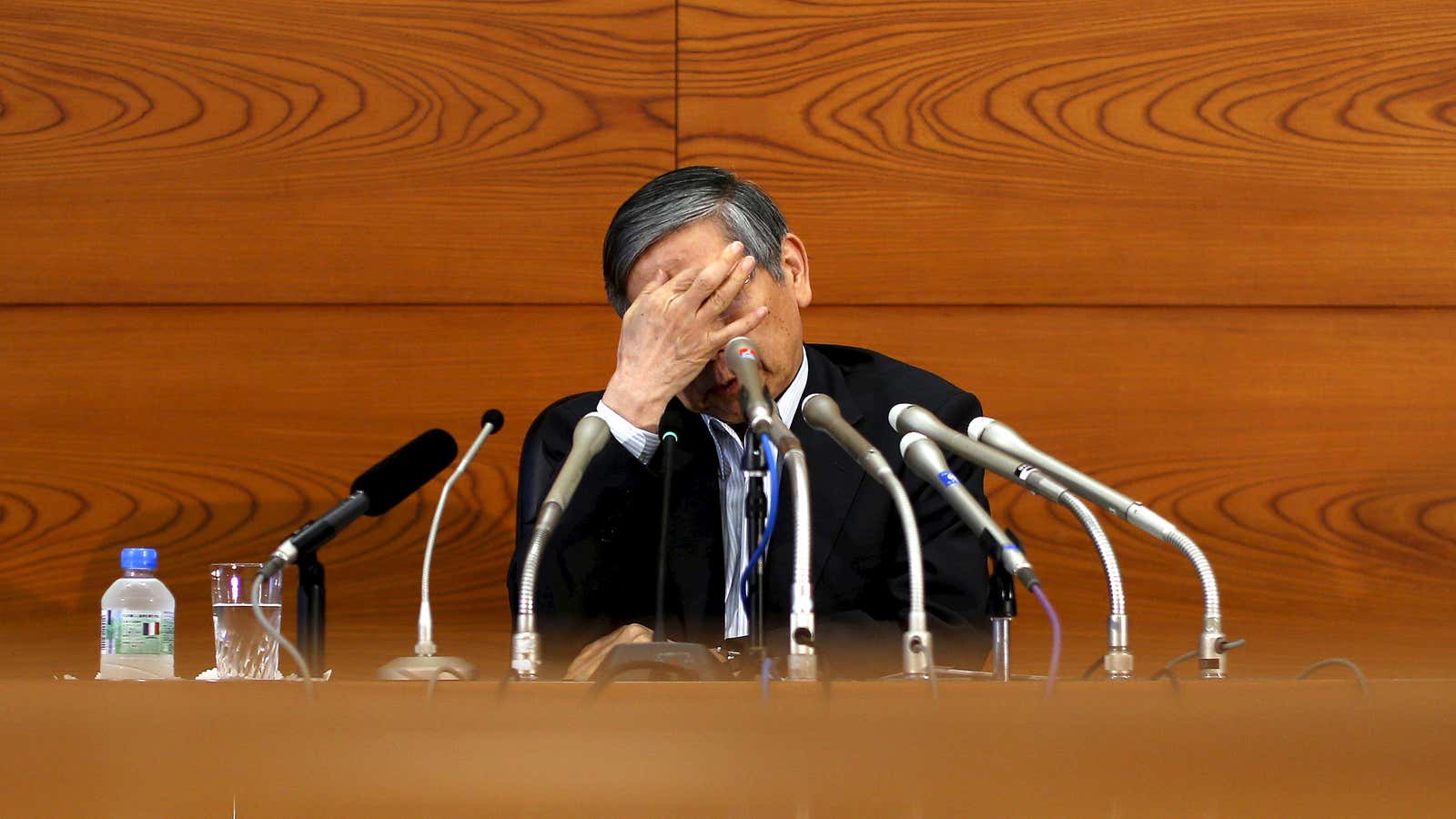It takes rare circumstances to get a country’s top banker to demand bigger pay raises for union workers, but that’s exactly what we are seeing in deflation-scarred Japan.
There, the largest union association, Rengo, is seeking a 2% raise this year for the 6.75 million workers in its member organizations. But officials at Japan’s central bank, which has been pushing aggressively to raise inflation, say that’s not enough and that workers should be demanding more, the Wall Street Journal reports.
The unions are focused on Japan’s overall consumer price index, which is around zero, and on slowing demand from China, which they think will make it difficult for them to get any raises at all.
But breaking this cycle of expectations is the Bank of Japan’s mission under governor Haruhiko Kuroda. Its officials argue that if falling energy prices are removed from the consumer price index, inflation is already rising, increasing 1.2% in September and October. Union leaders should focus on those numbers, they say, and on policies the bank and the broader government under prime minister Shinzo Abe are putting in place.
It’s a story that reveals the tricky job of being a central banker. Setting an inflation goal and adopting asset purchase policies to support it is one thing, but convincing the market—i.e. investors, businesses, and workers—that they should respond in kind is another. In essence, the labor union is telling the central bank it doesn’t think its plan will work, and the central bank is saying, yes it will—heck, it already is!
Since Abe was elected in 2012, he has worked to lift Japan out of its economic doldrums; though the country had maintained high employment and standards of living, its indebted economy and aging population had been shrinking in tandem, presaging troubles ahead. Abe has taken steps, including fiscal and monetary stimulus, efforts to bring more women into the workforce, and opening Japan’s economy through the Trans-Pacific Partnership, that his administration hopes will create new growth.
Results have been mixed so far, with many critics already calling the project a failure as growth has remained anemic. But it may be too soon to judge. China’s economic problems have been a drag, but when you examine Japan’s economy in light of its demographic issues, per capita income has actually grown, suggesting the program has some traction. And the central bank is right that at least some measures of inflation are turning green.
If only they can convince the labor unions.
